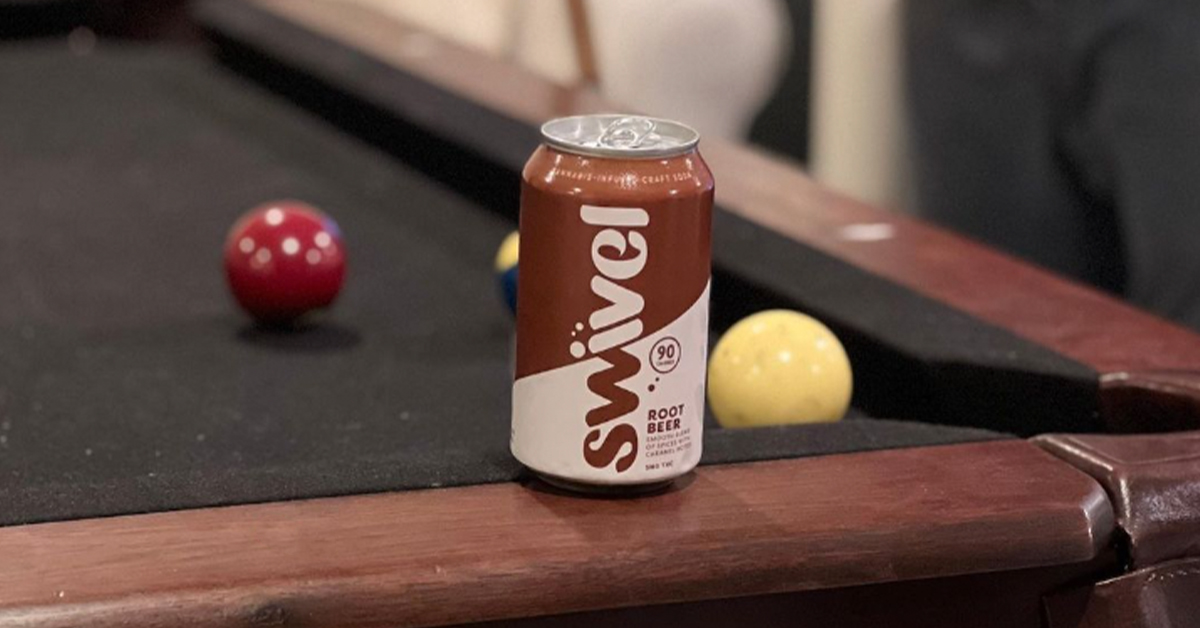
Having dived into the cannabis beverage pool, Monarch Emulsions is now eager to go deeper.
The Rhode Island-based company is part of a growing cohort of Northeast cannabis processors eyeing a piece of the exploding THC-infused beverage market. With capabilities to produce high-potency inputs for use across cannabinoid- infused food and drink, including nano-encapsulated emulsion, Monarch is positioning itself to become a player in the region as the emergence of hemp-derived Delta-9 THC drinks in the mainstream continues to create both upheaval and opportunity. Massachusetts-based startup The Drinkable Company uses Monarch’s emulsions in its various beverages.
We spoke with Monarch’s chief marketing officer Derek Gould – a partner alongside experienced cannabis operators John Miles (CEO) and Brendan Delaney (COO) – about the company’s market strategy, its outlook on the rise of hemp-derived D9 drinks (and its impact on the licensed, recreational side) and the major industry-wide challenges that lie ahead.
This conversation has been edited for clarity and space.
Why did you decide to focus on emulsions as the cannabis supply chain?
Having direct experience in the manufacturing side of cannabis, I know that working with water soluble (THC) is very, very difficult in the industry. It’s super expensive, probably one of the more expensive inputs in these end products. And the potency is super low in all of these emulsions, so in order to use it takes a lot more.
Our partner out in California has a manufacturing and distribution license for cannabis, so he has been working in the CBD space for quite some time. He was doing some research and secured some intellectual property that can actually give you a more potent emulsion. So a lot of the players out there that we were working with previously, they’re going anywhere from 3% to 8% CBD. We were testing out at about 20%. About eight months ago, we started doing a lot of R&D with THC distillate and we got the same results. Based off of us doing it directly and cutting out the middleman, we can actually do it for close to around 40% less than what’s out there in the market.
What types of product makers are you looking to partner with?
We can do any kind of beverage whether it’s carbonated or not. We’re working with a client right now that is using 300 milligrams THC per unit, the maximum amount of THC in a bottle. So we were doing that for high potency. The equipment that we’re getting drop shipped this week has the capabilities of doing powders and pill capsules.
If we’re working in a state that is licensed for adult use we have to go to that facility and actually manufacture their oil for them. With hemp-derived Delta-9 THC, it is legal across state lines. So we have a facility where we can manufacture that we actually go out in the THC market to the operators and make the emulsion there.
Is hemp-derived Delta-9 THC the primary driver of demand at this point, rather than marijuana-derived?
I’d say those are kind of on par. I think the volumes are a lot larger for Delta-9 that we’re seeing. Look at Massachusetts, where Levia owns 50% of the market share for infused beverages in the regulated THC space. You see all these brands that are coming in fighting for shelf space, but it’s tough to get on people’s shelves in a mature, or plateaued, market.
So I think the route that a lot of these companies are taking – because they kind of are forced – is to pivot, and to scale where they can have interstate commerce or D2C. You just don’t have that option as a manufacturer or brand that’s co- packing in some of these states that are just flooded with products.
Within that context, is marijuana-derived THC a dead end?
I don’t know if [hemp Delta-9] is necessarily gonna leapfrog it right off the bat, but the pace that it’s growing, and the fact that this can be international as well, is definitely interesting. I think as more states open up and adopt some form of legal cannabis, there’s always going to be a need, but it’s just crazy just to see this explosion [in hemp].
Just look at what happened in Minnesota a few months back. I think a lot of where some of these companies are running into issues, beyond inputs in the actual manufacturing and distribution, is because everyone’s kind of pivoting at the same time. So finding the distributors that can get you in multiple states whether it’s a basic storefront or an actual liquor store. That sentiment has been pretty resounding as far as distribution goes.
Is Minnesota the regulatory template that you believe other states can, and should, follow?
I think the regulatory bodies are different in every state, obviously. You have the Bible belt, you have your red and blue states, so there’s always going to be some differentiation there. But I think what really we need to focus on is the Farm Bill. Delta-9 is covered under that, technically. This gives [farmers] avenue and revenue stream for these massive farms that have been built.